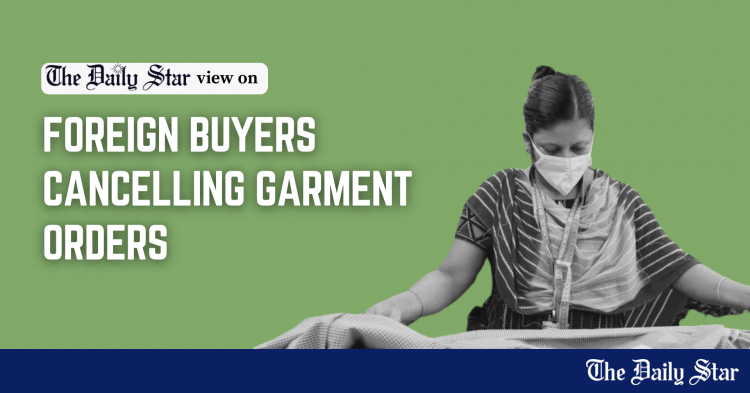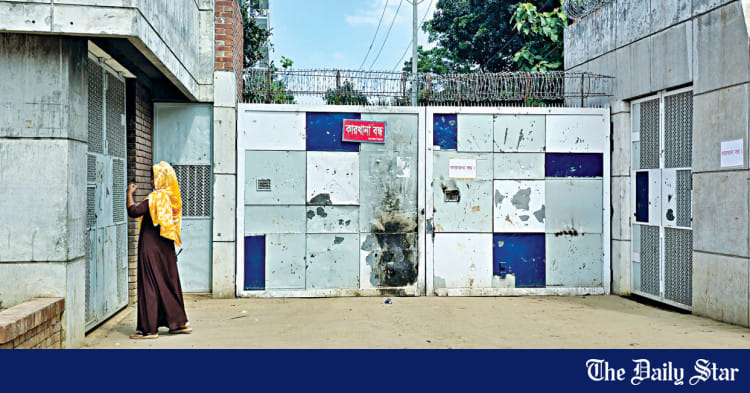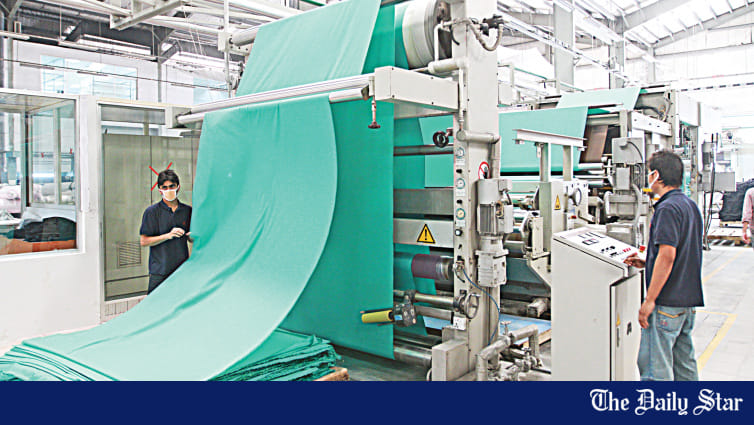Saif
Senior Member
- Joined
- Jan 24, 2024
- Messages
- 17,262
- Likes
- 8,334
- Nation

- Residence

- Axis Group


Army, police to start joint operation tonight to safeguard RMG factories
The Bangladesh Army, police and industrial police will start a joint operation in Savar, Ashulia and Gazipur areas tonight to safeguard the ready-made garment (RMG) industries. Home Affairs Adviser Lieutenant General (retd) M Jahangir Alam Chowdhury has issued such a directive. BGMEA President Kh
Army, police to start joint operation tonight to safeguard RMG factories
BSS
Published :
Sep 02, 2024 21:03
Updated :
Sep 02, 2024 21:03
The Bangladesh Army, police and industrial police will start a joint operation in Savar, Ashulia and Gazipur areas tonight to safeguard the ready-made garment (RMG) industries.
Home Affairs Adviser Lieutenant General (retd) M Jahangir Alam Chowdhury has issued such a directive.
BGMEA President Khandaker Rafiqul Islam told reporters after a meeting of the BGMEA and BKMEA with the home affairs adviser this afternoon at the Bangladesh Secretariat.
Earlier today, workers seeking jobs were protesting at Ashulia by blocking the Nabinagar-Chandra and Baipail-Abdullahpur roads, demanding equal employment opportunities for men and women in RMG factories, among other demands.
The workers gathered in front of various factories along the Dhaka EPZ and Baipail-Abdullahpur roads to begin their demonstration for employment this morning.
At one point, the protesting workers placed barricades at various points on the Nabinagar-Chandra and Baipail-Abdullahpur roads.
They started throwing bricks and stones at the factories, causing severe traffic congestion. A good number of factories in the area were forced to declare a holiday amid the protests.
Meanwhile, the industrial police and army members managed to clear the Baipail-Abdullahpur road of barricades.
BSS
Published :
Sep 02, 2024 21:03
Updated :
Sep 02, 2024 21:03
The Bangladesh Army, police and industrial police will start a joint operation in Savar, Ashulia and Gazipur areas tonight to safeguard the ready-made garment (RMG) industries.
Home Affairs Adviser Lieutenant General (retd) M Jahangir Alam Chowdhury has issued such a directive.
BGMEA President Khandaker Rafiqul Islam told reporters after a meeting of the BGMEA and BKMEA with the home affairs adviser this afternoon at the Bangladesh Secretariat.
Earlier today, workers seeking jobs were protesting at Ashulia by blocking the Nabinagar-Chandra and Baipail-Abdullahpur roads, demanding equal employment opportunities for men and women in RMG factories, among other demands.
The workers gathered in front of various factories along the Dhaka EPZ and Baipail-Abdullahpur roads to begin their demonstration for employment this morning.
At one point, the protesting workers placed barricades at various points on the Nabinagar-Chandra and Baipail-Abdullahpur roads.
They started throwing bricks and stones at the factories, causing severe traffic congestion. A good number of factories in the area were forced to declare a holiday amid the protests.
Meanwhile, the industrial police and army members managed to clear the Baipail-Abdullahpur road of barricades.









































